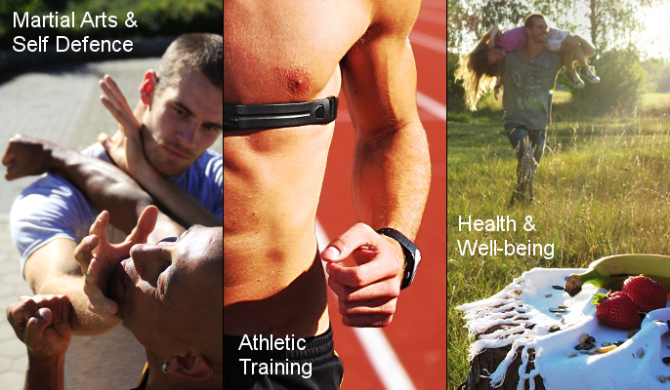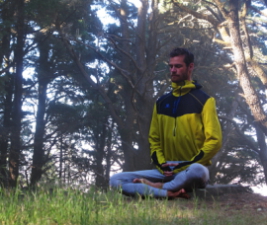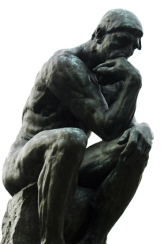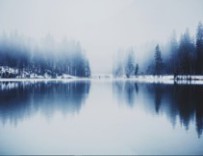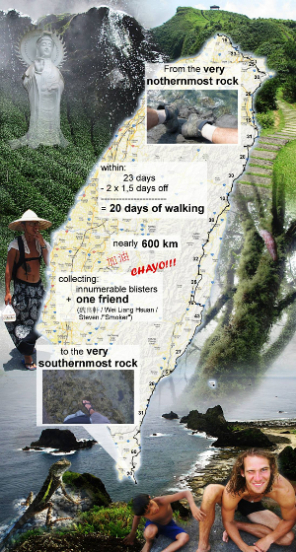Other Activities
My personal two main interests in training are (press for more info):
My martial arts experience includes various western and eastern disciplines and 13 trips to six different Asian countries for a total of twelve months. I was personally trained and certified by grand master Wan Kam Leung in Hong Kong in 2013 and 2019.
Athletic training focuses on high-level performance (functional strength, endurance, and stability) across disciplines. My studies taught me to analyze and identify performance determinants.
More
This section introduces some more activities which I am interested in and attempt to implement in my (daily) life. So far, they are non-professional and only part of my leisure time. However, I could imagine developing project ideas related to topics such as cold exposure, outdoors, or daily life training. If you have suggestions or own projects in the planning stage, let me know.
Meditation: There are plenty of different ways and desired outcomes of meditation. During my trips to Asia, I practiced with a variety of teachers. Since communication was sometimes a challenge, I actually do not know exactly which types I have been introduced to. Personally, I am most interested in the effects at physiological levels and what is possible to influence the body through the mind. Many of these effects are similar to what the scientifically recognized 'bio feedback' is known to achieve. Obviously, there must be a difference in the magnitude of the effects between athletes or patients doing biofeedback for some weeks/months compared with experts in meditation practicing for years. The second (to me) most relevant aspect is the effect on the mind and personality in terms of theoretically (via meditation) living through situations or preparing oneself for situations. This is clearly an entirely different purpose and method of meditation. Unfortunately, I did not manage to practice permanently since I started in 2009; sometimes more, sometimes less frequently. Currently, I just use it sometimes for relaxation and well-being.
Philosophy: First, I focused primarily on books addressing Far Eastern philosophies (mainly Taoism and Zen). Soon, I began to read only translated primary sources (original author) instead of secondary sources (other authors discussing the primary source) and I would highly recommend that to everyone for the following reason: Many phrases or whole paragraphs (especially from the Far East) are written in a way that they deliver multiple messages. How someone understands the text and to what conclusions the reader may come, is intended to depend on the reader's mind. These will be the proper lessons for the reader's current state of mind, not the lessons another author would conclude and deliver.
I read classics like 'Tao Te Ching' or 'The Book of Five Rings' (simple and applicable, not only to swordsmanship) but my favorite book may be 'The Unfettered Mind', written by Takuan Sōhō. Later, I started reading more and more scriptures and letters from Greek and Roman philosophers, one of my favorites is Seneca because the reader can feel he was not only talking but really living his teachings to the bitter end.
During 2012-2015, I studied philosophy at the University of Salzburg but participated only in selected courses I was interested in.
Cold Training: As a child, I never was sensitive to cold (at the psychological level at least). So I never was stopped easily because of feeling cold and I think I exposed myself more frequently to cold than others do. But since I recently heard about scientifically investigated effects of cold showers and especially about the Wim Hof method, I implemented systematic cold training to my daily schedule. It includes one breathing exercise, cold exposure under certain conditions (e.g., try to suppress an increase of muscle contraction, continue calm breathing, creating specific mindset...), and instructions on how (not) to warm up again afterward. It is unbelievable how it can boost your energy level for the rest of the day. Besides, it can teach you to accept physical discomfort better, redefine your comfort zone, and relax under physical stress.
Daily Life Training: If your work does not require you to be physically active, you could think about making your daily life more challenging. One thing is you could add some exercises between your daily tasks. Another thing could be to adapt your routines in a way that they become physically more challenging. It does not take much time (you just may need a bit longer for some tasks because of increased difficulty) and it can make fun to experiment and play with movements. You can use only one arm/leg or adjust levers when standing up from a chair or lifting objects (challenging your strength), you can do things standing on one leg or just the toes (challenging your balance) or in stretching postures (challenging your agility). If you think such measures will not have a mentionable effect keep in mind that the difference in physical shape between an office worker and a street worker does not result from the street worker lifting heavy weights a couple of times as seen in gyms but from performing physical tasks hundreds of times throughout the whole day every day. Modern life comfort is what makes us weak, not the lack of condensed 1-2 hours training sessions 2-3 times per week.
Light Outdoors: The beauty of light outdoor activities is in the close connection with nature and in experiencing the simplicity of nature and human being. It taught me what we as humans need and through which unimposing events we can find satisfaction. But most importantly, it taught me that having more can be a burden and create pressure, having less can be relieving. It is not only about carrying things around which you might not need during the whole journey; it is about not worrying to maintain things you own and knowing that you do not need more than what you can manage to get by yourself. This makes you free in your actions and decisions. Sometimes I have periods where I enjoy and even need this absence of anything one may wish for but does not require. On my first own trip at the age of 20, I travelled mainly in nature for two months carrying a tent. After this journey, I did several outdoor travels for 1-2 months always sleeping outside, never again with a tent because it is not necessary (whether it was in the jungle in Vietnam or Panama or elsewhere). My backpack for two months outdoors weighs a total of 10kg (no high-tech, superlight equipment).
Travelling: Most of my journeys lead me to Asia, namely Taiwan (5 times), Japan (3 times), South Korea (2 times), Hong Kong (2 times), Vietnam, Philippines. The first trip was in Japan for 2 months, accompanied by a friend, at the age of 20. For both of us, it was the first big trip far away from home on our own without a cell phone. We travelled mainly through rural and natural areas and restored food on any occasion. Whenever we passed more civilised areas, I asked for martial art schools and joined classes. During later journeys, I also looked for and found meditation teachers and sometimes stayed in areas to practice frequently with particular martial arts or meditation masters. In reality, of course, you do not find them in temples or in the mountains but in gyms, public parks or schools before dawn (/dusk) or even in a backyard workshop (happened once). I never travelled alone, twice I tried: Once a wild but very friendly dog joined and followed me until the end of the trip; once I met a new friend in the streets of Taiwan who spontaneously joined me for the rest of the trip which lasted another three weeks (we shared my very basic equipment for one person, always sleeping in the nature). He definitely tried to handle my philosophy of light outdoors. Although he lived in Taiwan, we managed to travel together once per year for the next four years.
Dr. Philip X. Fuchs, PhD No 162, Sec 1, Heping East Rd, Da'an, 106 Taipei, Taiwan philip.fuchs@ntnu.edu.tw +886 (0)933 073162
